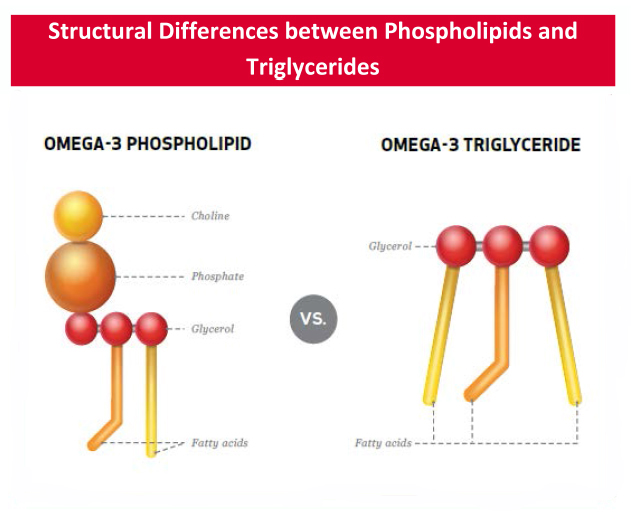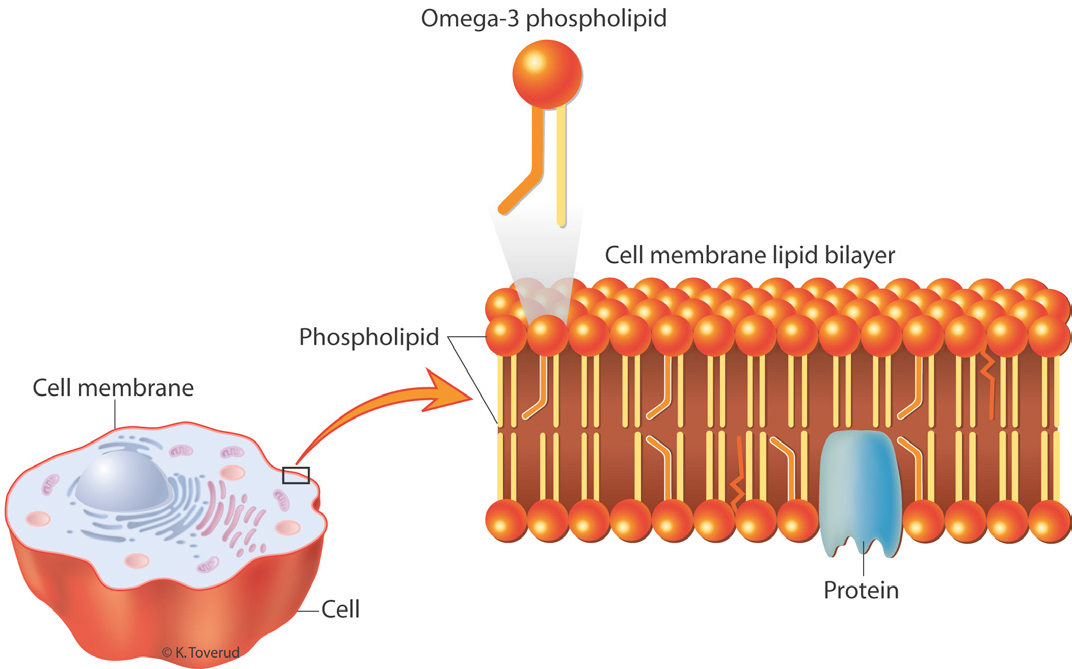The Power Od Phospholipids
Krill oil contains specialized fat molecules called phospholipids
The omega-3 fatty acids EPA and DHA are bound to these phospholipids. The phospholipid-bound forms of omega-3 fatty acids seem to have select advantages in how they are absorbed and utilized by the human body. A small number of studies have examined how phospholipid-bound fatty acids are used in comparison to triglyceride forms.
Phosfolipids are the building blocks of cell membranes and present the best source of omega-3 and omega 6 fatty acids. Krill omega-3s are transported and integrated into cell membranes quicker and more efficiently because they are bound to phospholipids.

suggest that krill oil is a more bioefficient carrier of omega-3 in humans.
Phospholipids – key structural and functional roles
Phospholipid fatty acids are key structural components of human cells and cell organelles and play a vital role in membrane functioning. Systemic transport pathways and, especially, the transport of molecules across cell membranes and sub-cellular membranes involve phospholipids. Thus, the functioning of the body’s cells, tissues, and organs is affected by the bioavailability of various phospholipid fatty acids.

Omega-3 phospholipids from krill
are more bioefficient source of omega-3
than the omega-3 triglycerides derived from fish oil
Omega-3 phospholipids – more bioefficient source of Omega-3
Increased intake of omega-3 is recommended due to its beneficial overall health effects and its capacity to prevent and ameliorate disease. Krill oil delivers omega-3 in the phospholipid form. Omega-3 phospholipids are more efficiently absorbed via the small intestine and distributed to tissues, compared with omega-3 triglycerides. Omega-3 phospholipids are suggested as preferred sources of omega-3 for human cell structures and cell functions, as a result of greater bioavailability and bioefficiency, compared with omega-3 triglycerides. Thus, omega-3 phospholipids from krill are a more bioefficient source of omega-3 than the omega-3 triglycerides derived from fish oil.
